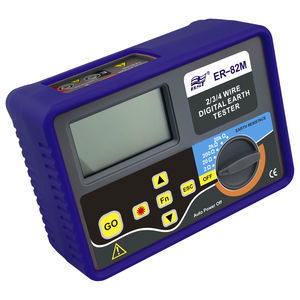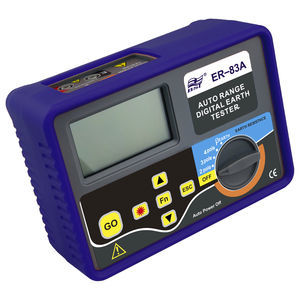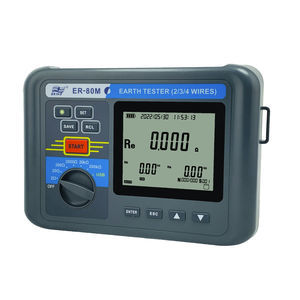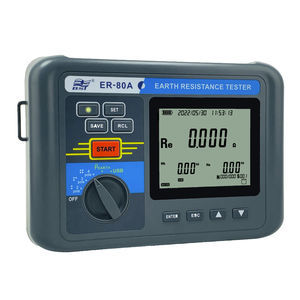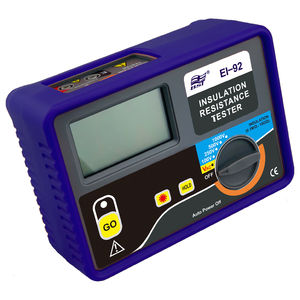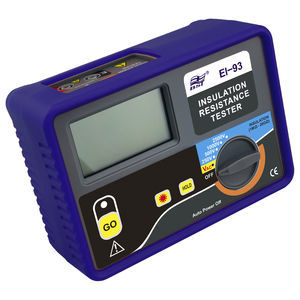
- Metrology - Laboratory
- Metrology and Test Equipment
- Insulation tester
- BST Caltek Industrial Ltd

- Company
- Products
- Catalogs
- News & Trends
- Exhibitions
Insulation tester EI-91for electrical appliancesmotorfor telecommunications devices
Add to favorites
Compare this product
Characteristics
- Test type
- insulation
- Tested product
- for electrical appliances, motor, for telecommunications devices
- Applications
- industrial, for telecom applications
- Configuration
- portable
- Other characteristics
- digital
Description
An insulation tester has been introduced to help test equipment for electrical utilities, industrial applications, data/ telecommunications and electrical contractors. Why do we test insulation over time? When insulation breaks down, it degrades for many reasons. If insulation is compromised, injury or even the danger of fire equipment failure and lost production time are possible.
What causes the insulation to break down? It may happen when electrical stress, too much voltage or even too little in a particular application can cause the insulation to crack for a breakdown.
What will an insulation tester tell us? When we start thinking about replacing the cable. The cable links current when it gets to an unsafe point. Cable issues will lead to current leakage, affecting the device's performance. Conversely, an insulation tester will help us predict when the cable needs replacing. Knowing this information lets us ensure we have the parts to repair or replace. To have a maintenance schedule as opposed to experiencing a catastrophic failure.
The British Standard Tester EI insulation tester models (EI-91 / 92 / 93) can perform insulation tests (IR test Voltage range 50V to 2500V) to assure the insulation resistance (0.05MΩ to 20GΩ) for your equipment safety. They are suitable and commonly used in various applications: EI-91 Telecommunication & wiring contracting, EI-92 industries & home appliances and EI-93 Motor manufacturer & production factories.
Catalogs
No catalogs are available for this product.
See all of BST Caltek Industrial Ltd‘s catalogsRelated Searches
- Measuring device
- Portable testing system
- Digital testing system
- Portable measuring device
- Industrial testing system
- Insulation testing system
- Compact testing system
- Rugged testing system
- Installation tester
- Electrical appliance tester
- Length measuring device
- Earth impedance tester
- Earth resistance tester
- Motor testing system
- Electrical equipment testing system
- Ground tester
- Earth resistivity tester
- Cable length measuring device
- Telecommunications device tester
- Tester for telecom applications
*Prices are pre-tax. They exclude delivery charges and customs duties and do not include additional charges for installation or activation options. Prices are indicative only and may vary by country, with changes to the cost of raw materials and exchange rates.



